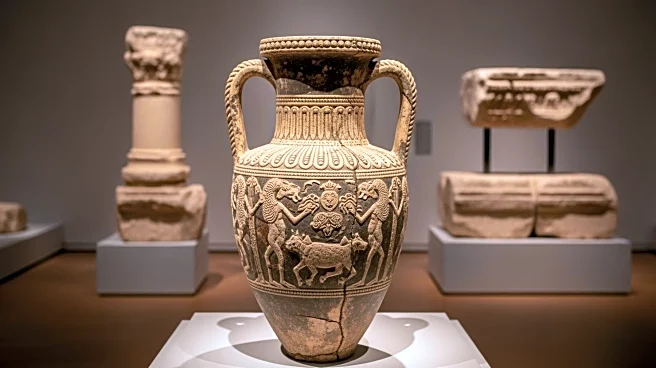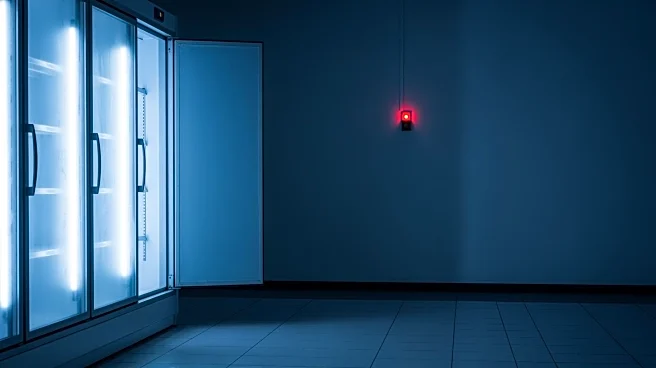What's Happening?
Archaeologists from the University of Missouri have uncovered a massive stone basin dating back to 250 B.C.E. in the ancient city of Gabii, near Rome. This discovery challenges the traditional narrative
of Rome's humble architectural beginnings. The basin, carved directly into the bedrock, was likely a monumental pool located in Gabii's forum, a central public space in Roman cities. The excavation, part of a long-term project, aims to explore the city's urban planning and its early adoption of Greek architectural influences. The site, designated as an archaeological park by Italy's Ministry of Culture, offers a unique glimpse into early Roman city planning, free from the layers of urban development that complicate excavations in Rome itself.
Why It's Important?
The discovery of the basin in Gabii provides significant insights into early Roman architecture and city planning, suggesting that Roman builders were influenced by Greek styles earlier than previously thought. This challenges the historical view that Rome's architectural grandeur only developed after its conquest of Greece in the 2nd century B.C.E. The findings could reshape understanding of Roman history and its cultural exchanges with neighboring civilizations. For historians and archaeologists, Gabii offers a rare opportunity to study Roman urban development without the complications of later urbanization, potentially leading to new interpretations of Roman history and its architectural evolution.
What's Next?
Future excavations at Gabii will focus on the area surrounding the basin, including a large stone-paved area and a nearby building that thermal imaging suggests could be a temple. These efforts aim to uncover more about the city's layout and the role of ritual in its public spaces. The findings could provide further evidence of early Roman architectural practices and their cultural influences. Researchers hope to understand the significance of artifacts found in the basin, which may have been used in religious offerings or rituals. The continued exploration of Gabii is expected to yield more discoveries that could further alter the understanding of early Roman history.











